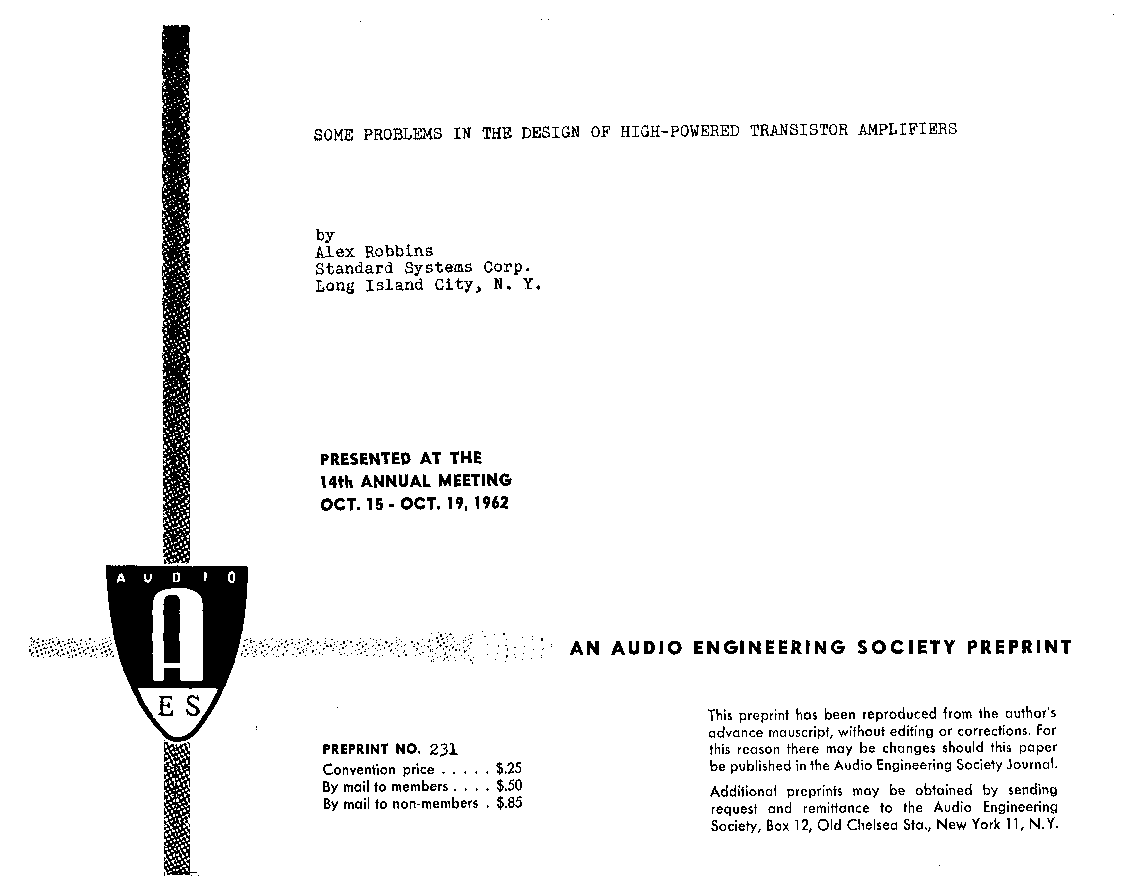Home / Publications / E-library page
You are currently logged in as an
Institutional Subscriber.
If you would like to logout,
please click on the button below.
Home / Publications / E-library page
Only AES members and Institutional Journal Subscribers can download
Transistor power amplifiers in limited space are controlled by allowable heat dissipation. In typical class -B- amplifiers, theoretical efficiency can be as high as 78%. Maximum heat dissipation within the transistor occurs theoretically at 40% maximum power output, at which point the efficiency drops to 50%. : If the voltage at low power output can be reduced in accordance with demand, the amplifier could be operated continuously at peak efficiency. Means can be provided to vary the supply voltage in proportion to the output voltage required. Test results, using groups of listeners, show that it is possible to achieve excellent results without detectable distortion.
Author (s): Robbins, Alex
Affiliation:
Standard Systems Corp., Long Island City, NY
(See document for exact affiliation information.)
AES Convention: 14
Paper Number:231
Publication Date:
1962-10-06
Import into BibTeX
Permalink: https://aes2.org/publications/elibrary-page/?id=717
(292KB)
Click to purchase paper as a non-member or login as an AES member. If your company or school subscribes to the E-Library then switch to the institutional version. If you are not an AES member Join the AES. If you need to check your member status, login to the Member Portal.

Robbins, Alex; 1962; Some Problems in the Design of High-Powered Transistor Amplifiers [PDF]; Standard Systems Corp., Long Island City, NY; Paper 231; Available from: https://aes2.org/publications/elibrary-page/?id=717
Robbins, Alex; Some Problems in the Design of High-Powered Transistor Amplifiers [PDF]; Standard Systems Corp., Long Island City, NY; Paper 231; 1962 Available: https://aes2.org/publications/elibrary-page/?id=717